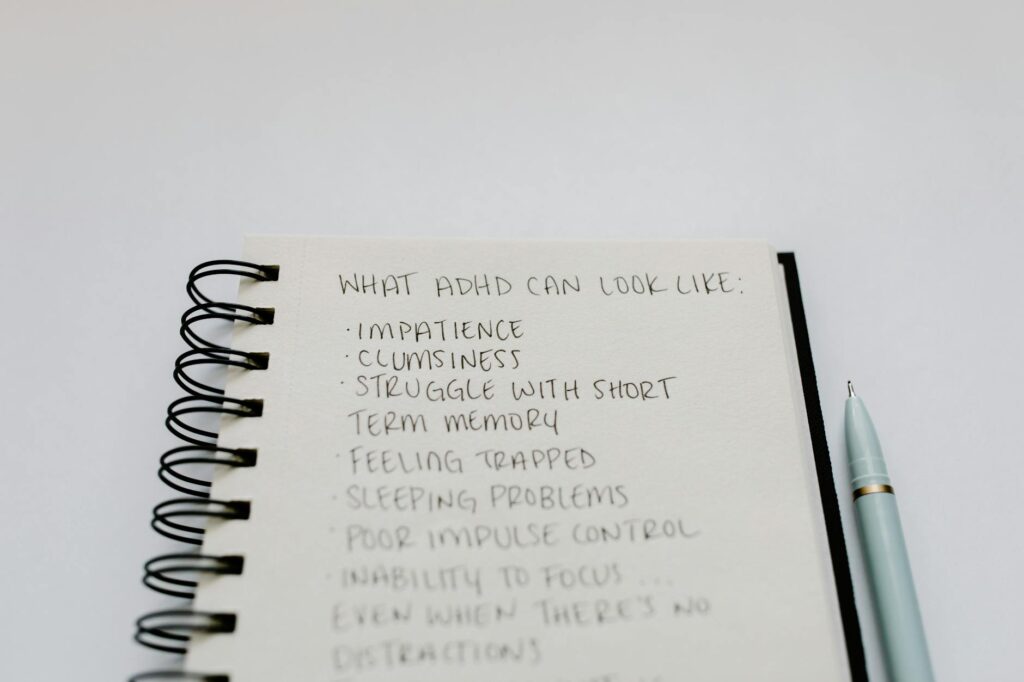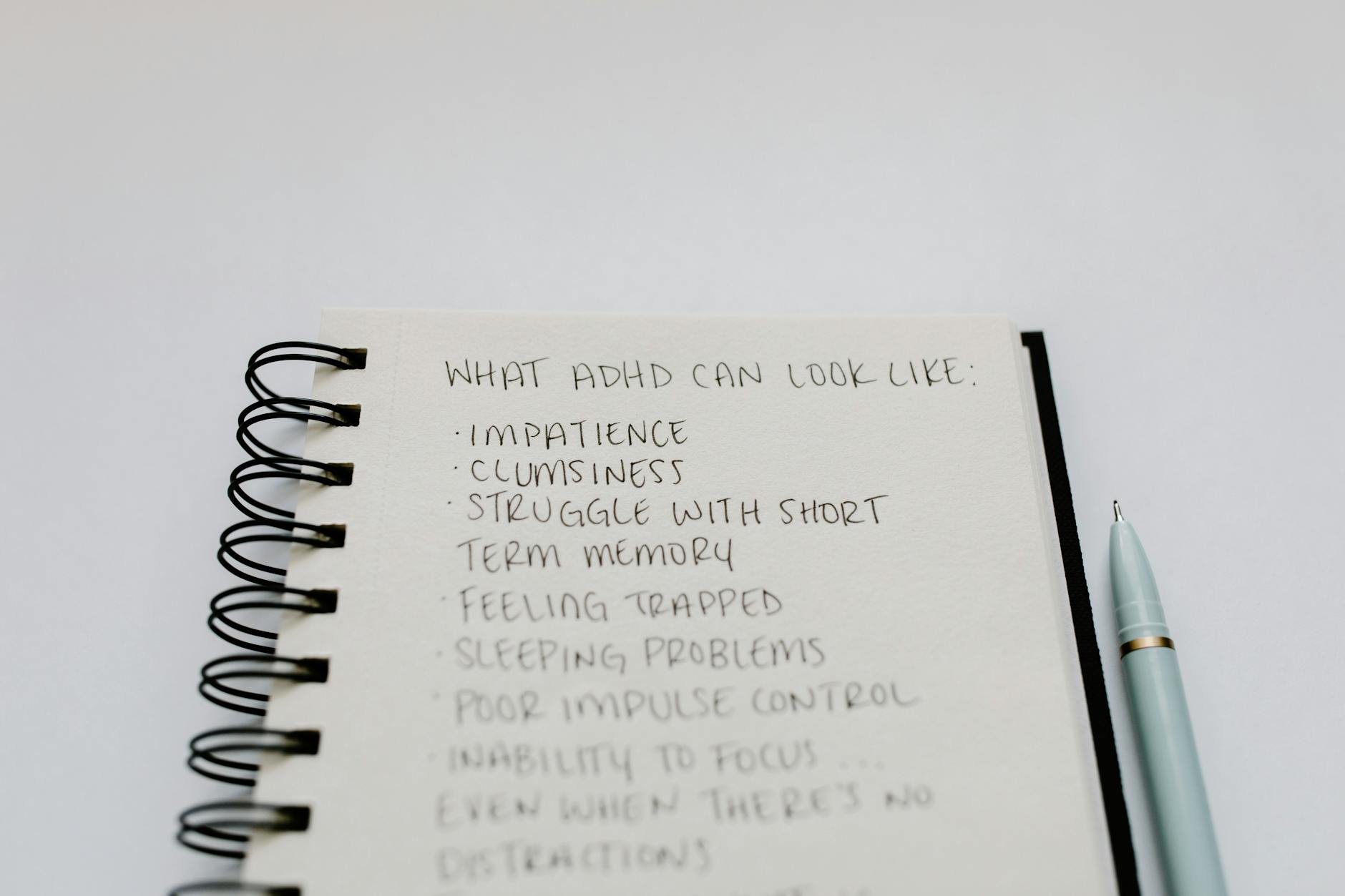What is adhd coping mechanisms?

What is adhd coping mechanisms?
Living with ADHD can feel like trying to navigate through a maze with distractions at every turn. Attention Deficit Hyperactivity Disorder (ADHD) can impact your ability to focus, control impulses, and effectively manage daily tasks. But there’s good news: coping mechanisms can empower you to tackle these challenges head-on. Let’s explore these strategies, helping you turn potential roadblocks into stepping stones.
Understanding ADHD
ADHD is more than just a childhood disorder; it can persist into adulthood, affecting various aspects of life. It’s characterized by difficulties in maintaining attention, controlling impulses, and managing hyperactivity.
Symptoms of ADHD
Common symptoms of ADHD include:
- Inattention: Difficulty focusing on tasks or following through with instructions. You might find yourself easily distracted by noise or movement.
- Hyperactivity: Feeling restless, often needing to move or fidget.
- Impulsivity: Acting without thinking, which can lead to hasty decisions.
These symptoms can vary significantly from person to person, making understanding and management crucial.
Impact on Daily Life
The effects of ADHD can ripple through work, studies, and social interactions. You might struggle to meet deadlines, misplace items frequently, or find it hard to engage in conversations. This can lead to frustration, low self-esteem, and even strained relationships. If you want to delve deeper into ADHD and its manifestations, you can check out resources like Understanding ADHD.
Effective ADHD Coping Mechanisms
Managing ADHD symptoms requires a practical approach. Here are some effective strategies to incorporate into your daily routine.
Time Management Techniques
Time can slip away when you’re dealing with ADHD. To combat this, try using:
- Planners: Keep a physical or digital planner to jot down tasks and deadlines.
- Timers: Set timers for tasks to create urgency. This can help you stay focused.
- Reminders: Use smartphone apps to remind you of upcoming deadlines or appointments.
By enhancing your time awareness, you can improve productivity significantly. For more ideas, 27 ADHD Coping Skills That Work offers practical suggestions.
Organizational Strategies
A cluttered space can lead to a cluttered mind. Here’s how to stay organized:
- Declutter: Regularly remove unnecessary items from your workspace to minimize distractions.
- Use Folders: Keep documents in labeled folders or binders to easily locate what you need.
- Visual Cues: Use sticky notes or color-coded systems to highlight important tasks.
A well-organized environment can make a world of difference in managing ADHD symptoms.
Mindfulness and Relaxation Techniques
Stress can exacerbate ADHD symptoms. Incorporating mindfulness can be beneficial:
- Meditation: Spend a few minutes each day in meditation to center your thoughts.
- Deep Breathing: Simple breathing exercises can help calm your mind, making it easier to focus.
- Progressive Relaxation: Gradually tense and relax each muscle group to reduce physical tension.
These practices can enhance your focus and improve emotional regulation. For more techniques, visit 6 Coping Skills for ADHD.
Behavioral Strategies for ADHD
Incorporating behavioral strategies can further support your journey with ADHD.
Setting Routines and Consistency
Routines provide a framework for your day:
- Establish Daily Routines: Try to follow a consistent schedule for tasks and activities.
- Stick to It: Consistency helps reduce anxiety and improves time management.
Creating structure can help you navigate daily demands more effectively.
Incorporating Breaks and Rewards
Taking regular breaks can enhance productivity:
- Schedule Breaks: Plan short breaks during tasks to recharge your mind.
- Reward Yourself: After completing tasks, reward yourself with something enjoyable to reinforce positive behavior.
These strategies not only boost motivation but also prevent burnout.
When to Seek Professional Help
While self-help strategies are valuable, sometimes professional guidance is necessary.
Therapy Options
Counseling can provide support tailored to your needs. Consider:
- Cognitive-behavioral therapy (CBT): This approach helps you challenge negative thought patterns and develop coping strategies.
- Support Groups: Engaging with others who understand your experience can provide relief and insights.
For more information on therapy options, resources like What Is ADHD? Symptoms, Subtypes & Treatments can be invaluable.
Medication Considerations
While not everyone with ADHD requires medication, it can be an effective part of treatment for some. Consult with a healthcare professional to explore options and determine what’s best for your situation.
Conclusion
Coping with ADHD can be challenging, but implementing practical strategies can significantly enhance your daily functioning. From time management techniques to mindfulness practices, these coping mechanisms can empower you to thrive. Remember, you’re not alone in this journey—explore these strategies, and don’t hesitate to seek professional help when needed. By taking action, you can turn your challenges into opportunities for growth and success.

Photo by Tara Winstead